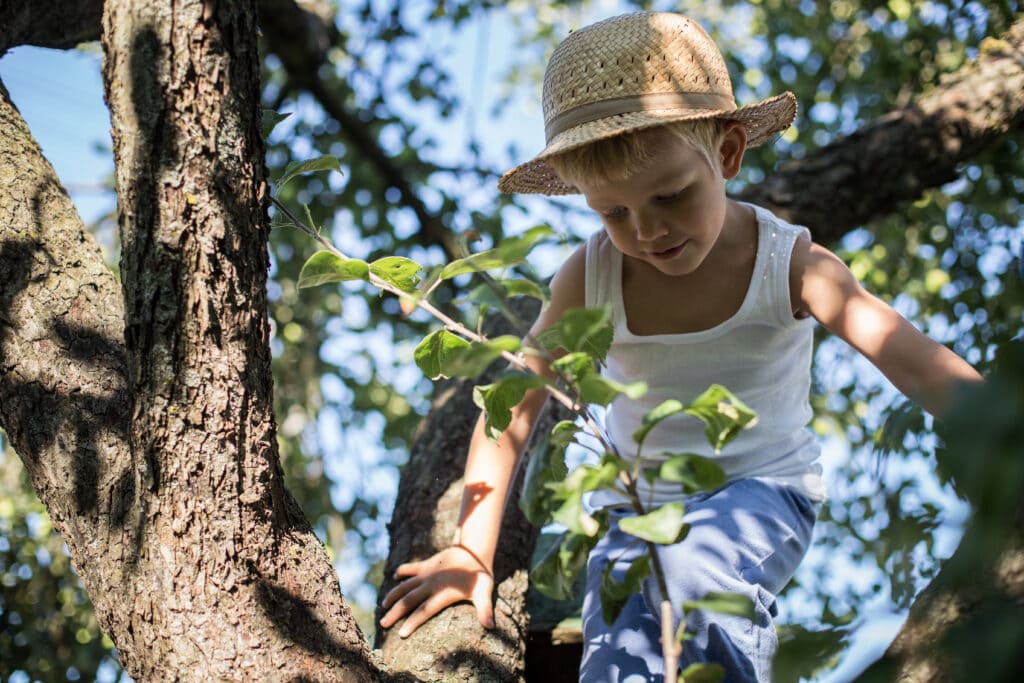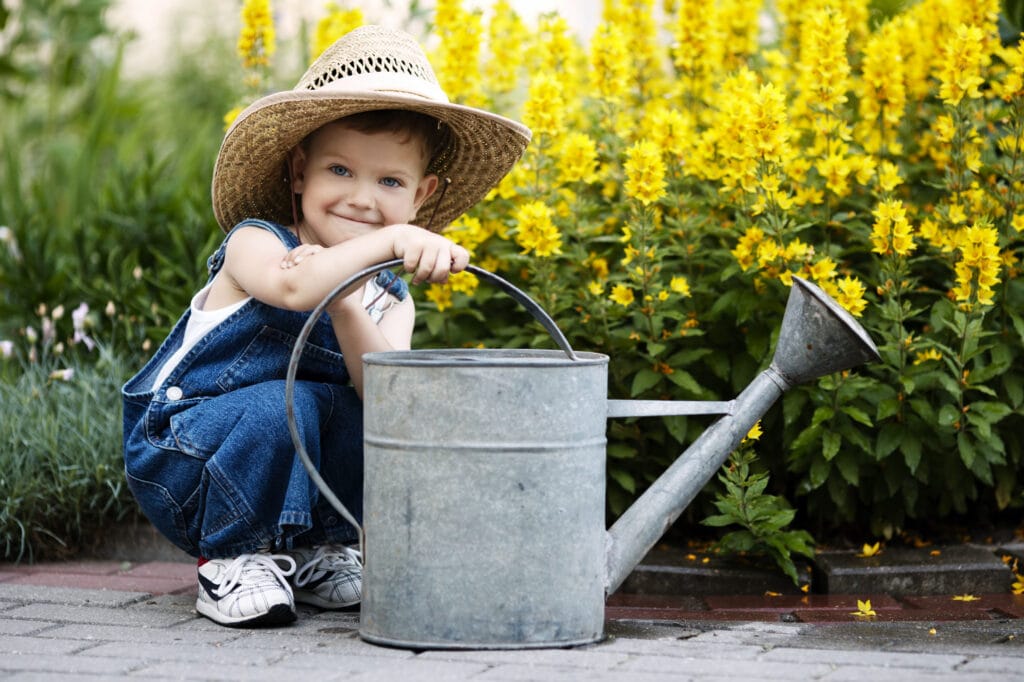Compared to your own childhood, do you think your kids spend less time outdoors? Nature Deficit Disorder – a phrase first coined by Richard Louv in 2005 – is not a medical diagnosis, but its effect on health is certainly noticeable. Spending too much time indoors, under artificial light and in limited company, results in diminished use of the senses, increasing short-sightedness, vitamin D deficiency, and reduced resilience and ability to cope with stress.
Luckily, there is a cure – get outside!
A dose of “Vitamin N”
Being outdoors is so GOOD for kids, with benefit that last a lifetime. Here are some of the positive effects Vitamin N (for Nature!) can have on your kids.
Problem solving
Outside play sparks a child’s imagination and creativity. There are endless ways to play outdoors, and as props are created from their surroundings, their problem-solving skills are developing.
Stimulate the senses
What an amazing array of sights, sounds, smells, and textures to explore in nature! From sunset reflections on water to multi-coloured birds, the sough of wind through branches to frog calls, the petrichor of wet earth to the scent of wild flowers, and the feel of rough bark to grass under bare feet. What a way to stimulate and develop the senses!
Physical development
Climbing, sliding, leaping, and swinging through the great outdoors – with heaps of fresh air to oxygenate the muscles – has an immense benefit to physical health and development. All that movement will also develop coordination, gross motor skills, and balance. And your child will be having so much fun they won’t even realise they’re exercising!
Cognitive development
Assessing heights and distances, observing weather and wildlife activity, noticing changes in trees from season to season – they’re all subtle ways your child is developing cognition and awareness. Your child will feel more connected to the environment, leading to healthier choices as they grow.
Resilience
Being outdoors often throws up challenges. There may be no immediate bathroom access, no snacks or water tap, a sudden rain shower or drop in temperature, a bump or scrape that can’t be immediately tended… Coping with these minor challenges will help your child learn to cope with bigger challenges later in life.
Outdoor adventures
There’s a great big wonderful world of adventure waiting to be discovered, but adventures can be small too! Here are some of our favourite ways to enjoy spending time in nature.
Backyard safari
Exploring amongst the plants of your own backyard or nearby park opens a micro-world of intriguing industry. Grab a book about Australian insects from the local library and see if you can spot different ants creating trails and carrying food back to the nest, or our tiny native stingless bees.
You might spot caterpillars or pupae, shy skinks, or colourful Christmas beetles. Encourage your child to identify what you find and use their imagination to make up stories about what the little creature’s life and adventures might be like.
Pooh Sticks
This was a favourite game of Winnie the Pooh. If you live near a creek or spillway with a bridge, Pooh Sticks is a race to see whose twig can float from one side of the bridge to the other the fastest. This game can also be played from point to point along a creek bank (under adult supervision) if you don’t have a bridge nearby.
Build a den
Kids love a secret space to be the base of their adventures. Dens can be made under low-hanging trees, or wigwam style from fallen branches. With a few logs to act as furniture, a den can be quite a cosy cubby.
Treasure hunt
Let your kids loose with a list of “treasure” to find. Suggestions could be 3 gumnuts, a bottlebrush leaf, a feather, a piece of fallen paperbark. A tick-list of things they spot can include wildlife and insects too that are left in place and not collected.
Pond dipping
Tie some string securely around the neck of a jar, and dip it into a pond. What will your child spot in the water? Dragonfly larvae, tadpoles, and maybe tiny fish are all possibilities.
Plant a garden
Form a connection with nature by nurturing it! Turning over soil to plant seeds, providing the right levels of shade and moisture, and the joy of seeing things grow can be very fulfilling. You could grow flowers that encourage bees and pollinators, vegetables and fruits for the kitchen, or native plants that provide food for wildlife.
Take a hike
Exploring parklands, mountain trails, rainforests, and waterfalls is the best way to connect with nature. Nature endures with constant new growth, diverse wildlife, ever-changing landscapes, and amazing views! Hiking as a family also encourages communication and bonding and keeps the whole family healthy. Try these Brisbane wetland walks for families.
A cure for Nature Deficit disorder
Unstructured outdoor play offers an array of health, social and developmental benefits to your child. Even just an hour outside each day could be beneficial in preventing nature deficit disorder, so try to include outdoor time as part of your daily routine.
This article was published in Issue 51 of our print magazine, dated April/May 2022.




